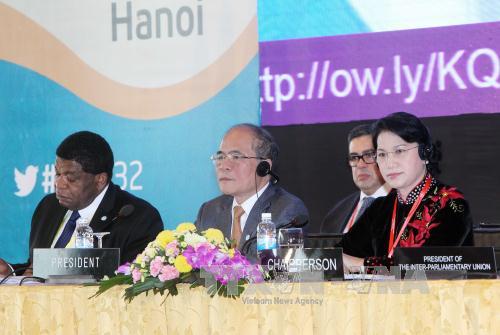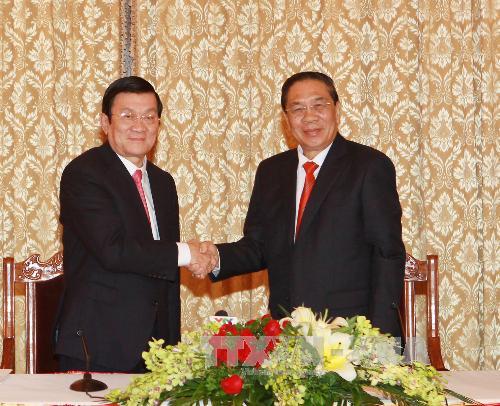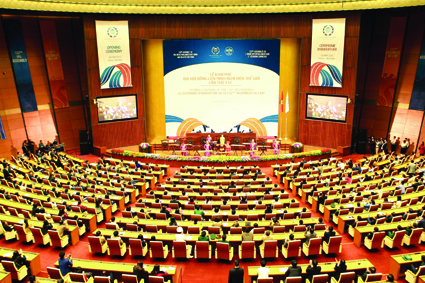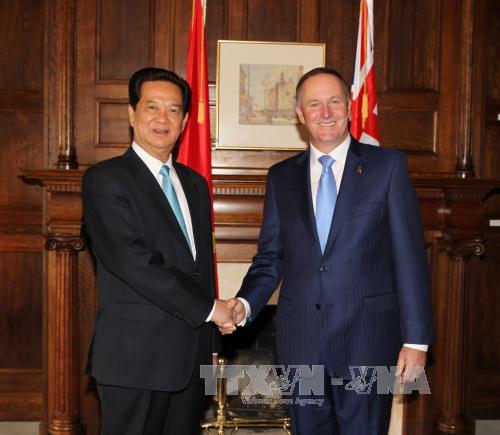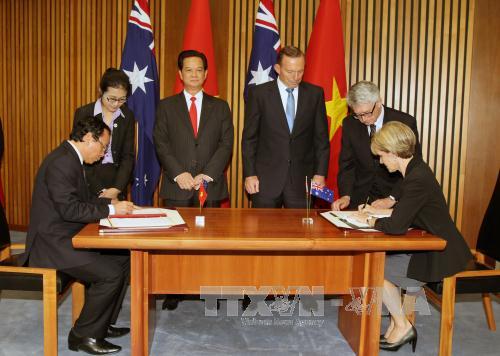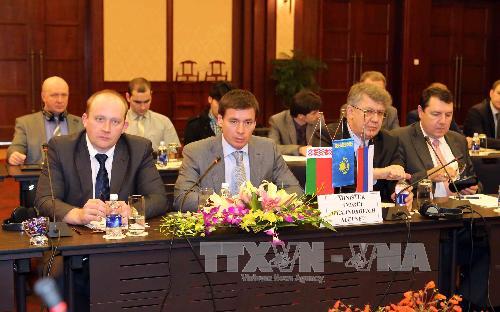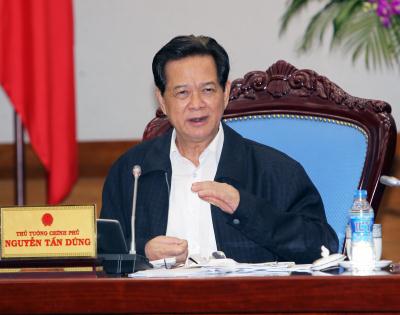The 132nd Assembly of the Inter-Parliamentary Union (IPU-132) officially opened on March 28 in Hanoi with the attendance of Vietnamese President Truong Tan Sang and National Assembly Chairman Nguyen Sinh Hung, IPU Chairman Saber Chowdhury and some 900 delegates and guests.
The IPU-132 has great historical and diplomatic significance for Vietnam, reflecting the Vietnamese National Assembly's willingness to integrate intensively and extensively into the international community as a responsible member of the global parliamentary union.
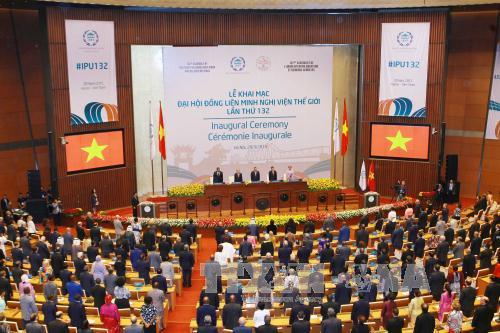 |
| The 132nd Assembly of the Inter-Parliamentary Union opens in Hanoi on March 28. — VNA/VNS Photos |
In his welcome remarks, President Truong Tan Sang said over the past 36 years, Vietnam had stood shoulder to shoulder with other IPU members to strive for common goals in such domains as sustainable development, promotion of democracy, and protection of human rights, gender equality, children's rights and other fundamental rights.
Thanks to its 30-year renewal process, from a low-income country, Vietnam had become a development partner with a dynamic economy and an attractive destination to investors, Sang noted.
As the host of the IPU-132, Vietnam wished to work together with other IPU members and the United Nations to formulate and implement sustainable development goals (SDGs) for a brighter future of humans.
As an active and responsible member of the IPU and other international organizations, Vietnam would do its utmost to, together with the international community, build a world of peace, stability, cooperation and prosperity, the President said.
The country also intended to settle disputes, including those relating to the East Sea, by peaceful means on the basis of international law, particularly the 1982 United Nations Convention on the Law of the Sea, and agreements reached by regional countries, he added.
“All aspirations will not become true if we do not act. This meeting is the meeting of actions to bring into play the role of parliaments in solving global issues,” Sang said.
In his opening speech, National Assembly Chairman Nguyen Sinh Hung said the IPU-132's theme, "The Sustainable Development Goals: Turning words into action," was extremely important at a time when the 15-year (2000-15) period for implementation of Millennium Development Goals was about to finish and the United Nations was to adopt an agenda for post-2015 development.
"At this assembly, we, therefore, take responsibility for discussing carefully the roles, tasks, and measures of national assemblies and parliaments, to turn words into action, expedite SDGs, and deliver messages carrying strong commitments of world parliament communities in productively implementing SDGs," Hung said.
He emphasized the need to raise awareness and rally social resources, including financial and technical ones, for the implementation and supervision of SDGs' contents.
The NA Chairman expressed his belief that the IPU-132 would accomplish designed agendas, achieve a high degree of consensus on adopting the Hanoi Declaration that would present big issues which were discussed and constitute commitments made by the IPU and its member parliaments to push for the development program after 2015.
He said the document with a clear message on parliaments' role in implementing the post-2015 development program that would be submitted to the United Nations General Assembly in September 2015, would be a practical contribution to the next phase of development of the international community.
Speaking at the inaugural ceremony, IPU President Saber Chowdhury said “Through functions of representation, legislation, appropriation of resources and robust oversight, we, as members of parliament, have the power to make a real difference and we will continue to press our governments to make sure that ambitions for the SDGs and aspirations of our constituents become a reality. We need to engage actively and take action on the post-2015 development agenda by tracking progress and monitoring implementation.-”
